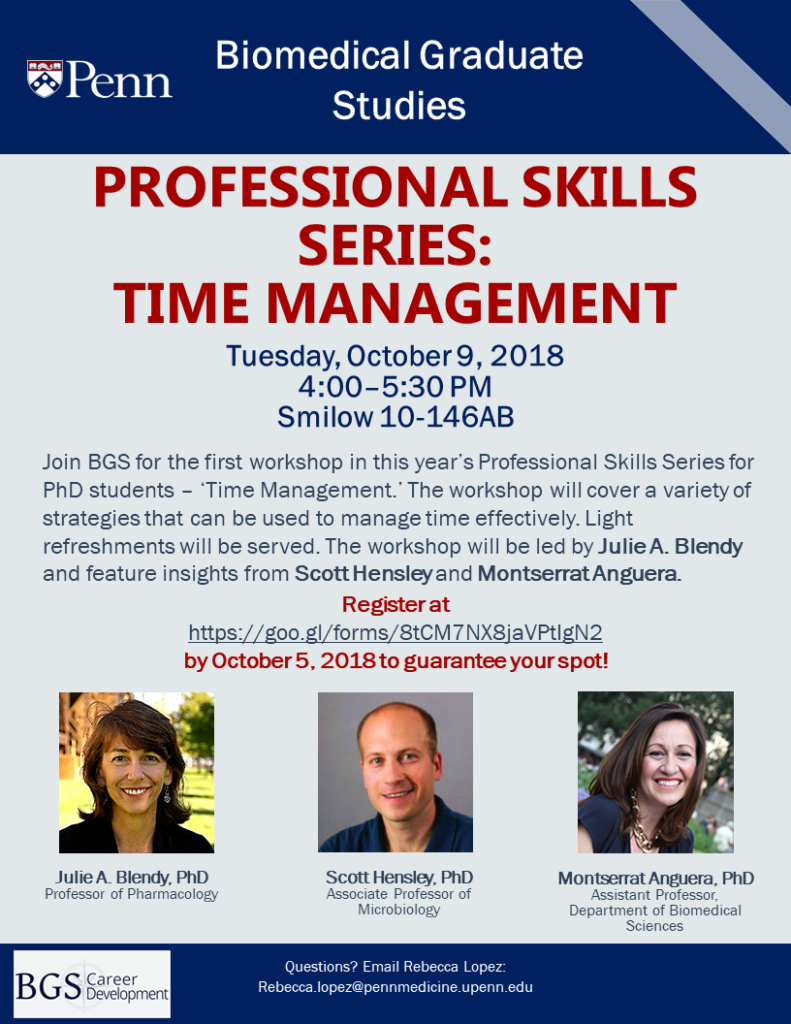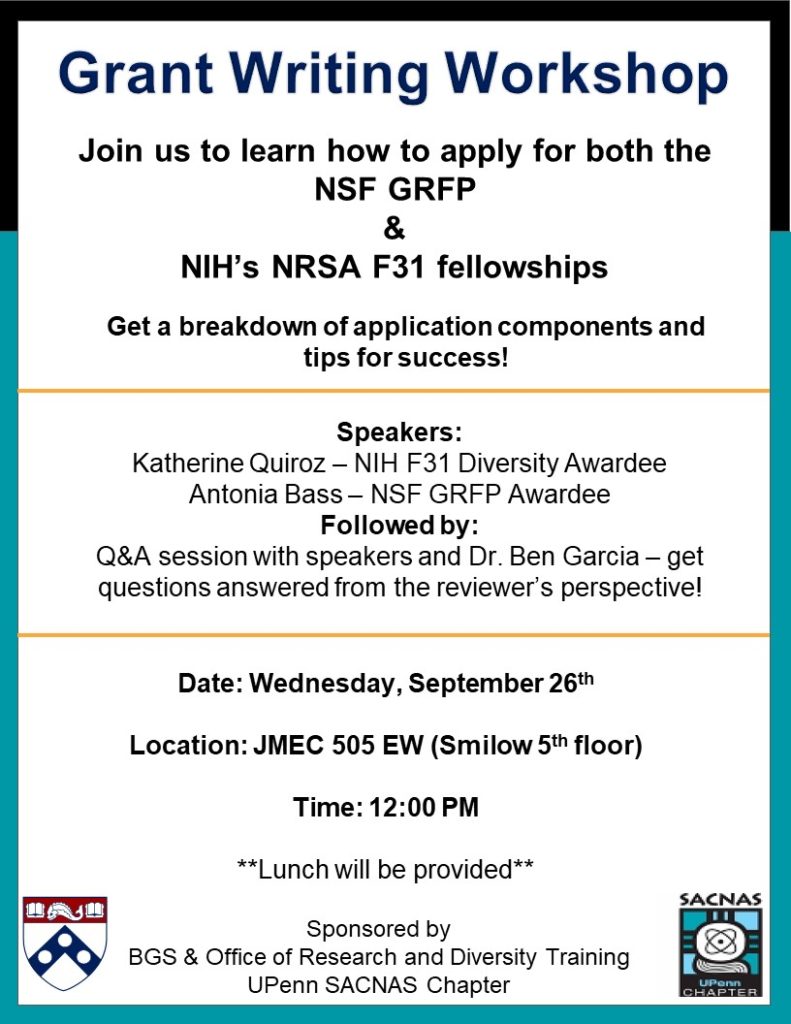The NIH’s Office of Intramural Training & Education (OITE) provides a number of useful career development resources, including videos as well as guidance on resume and cover letter writing and a number of other professional skills. Students exploring careers in different industries might be especially interested in their guideline to informational interviews. This document provides a definition of informational interviews, tips on how to request such a meeting, and a sample of general informational questions to ask.
Blog
BGS Professional Skills Series – ‘Time Management’
BGS is pleased to announce the first workshop in this year’s Professional Skills Series for PhD students – “Time Management.” The workshop will cover a variety of strategies that can be used to manage time effectively. Light refreshments will be served. The workshop will be led by Julie A. Blendy and feature insights from Scott Hensley and Montserrat Anguera.
When: Tuesday, October 9, 2018, 4:00-5:30PM
Where: Smilow 10-146AB
Please register by October 5, 2018 to guarantee your spot!
To register, click here or copy and paste the URL below into your internet browser:
https://goo.gl/forms/8tCM7NX8jaVPtIgN2
If you have any questions, please contact Rebecca Lopez.
SACNAS: Grant Writing Workshop
Learning how to write stellar grant proposals is a part of our craft and certainly important to a number of career paths. Join UPenn’s SACNAS Chapter to hear about the application process for two particular grants – the NSF GRFP and NIH’s NRSA F31 Fellowships.
When: Wednesday, September 26, 2018, at 12PM
Where: JMEC 505 EW (Smilow 5th floor)
Biophysical Society: “Using Social Media to Share your Science”
In recognition of social media’s power to spread information and misinformation alike, this career article from the Biophysical Society explores how these online tools can be used for science outreach, strengthening networks, and creating a following for one’s own research. The author offers a broad overview of Facebook, LinkedIn, and Twitter. They also provide strategies unique to each of these platforms, such as how to present yourself in the headline versus summary sections of LinkedIn.
iBiology: “Getting Involved in Science Policy”
iBiology has compiled a series of talks about science policy. The videos cover a variety of topics, including publications, science education, and more.
Science: “Explore the skills that can open career doors after your doctoral training”
This Science article discusses a survey of 3,803 science and engineering Ph.D.s working in various industries. Survey respondents revealed that while many believe they began developing important professional skills while in grad school, there are a number of skills that they have found very important at work that were not a central focus of their Ph.D. training (for example, personnel management.)
The article’s authors developed an interactive graphic based on the survey’s data. It compares the extent a skill is developed in grad school with its importance in 12 career sectors, including research, consulting, teaching, and more. It is intended to give doctoral students an overview of the day-to-day duties and responsibilities of jobs in a variety of sectors and to shed light on which skills should be prioritized, either within their Ph.D. training or through extracurricular activities.


